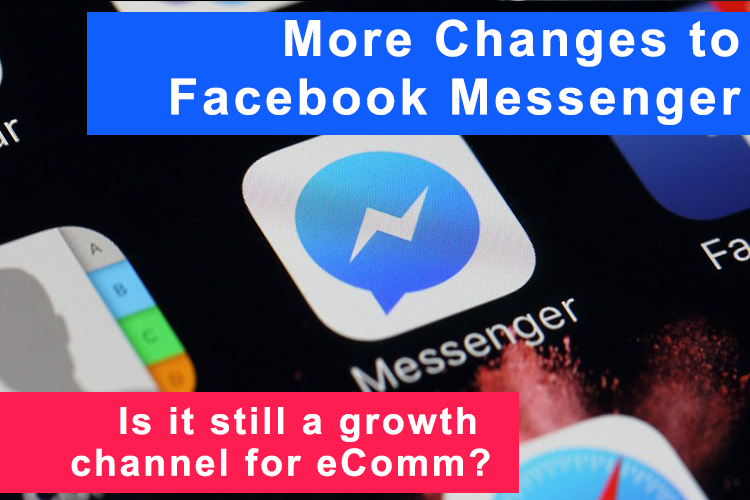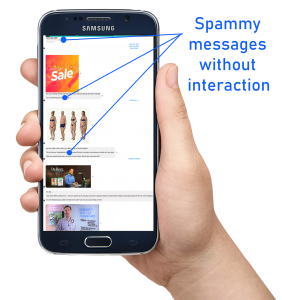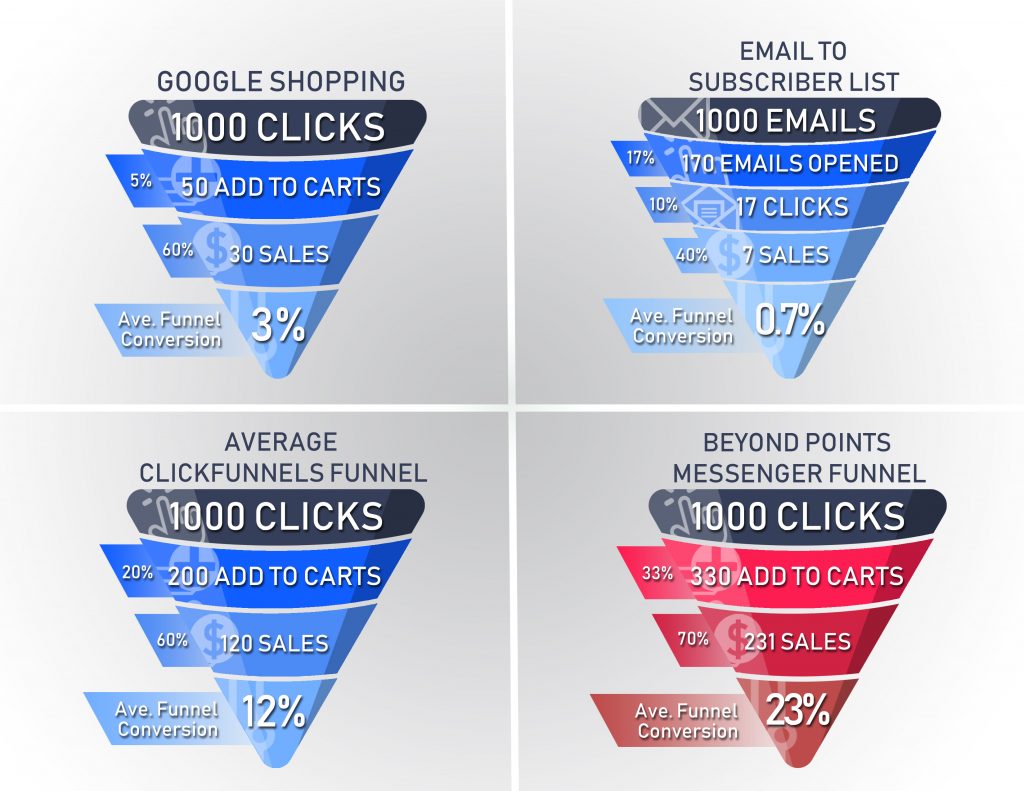
Just a few months ago we reviewed a round of sweeping changes to the rules of engagement on the Facebook Messenger Channel (see the last post here). This week, Facebook have updated their policies even further. The short story is that Facebook are taking increasingly strong moves to ‘protect’ their users from being spammed (and finding ways to make more money while they do that).
In this post we analyse what these latest changes mean, and how they might change your thinking regards marketing your eComm business.
Let’s take a look at what’s changing…
Here’s what a spokesperson for Facebook had to say…
“At Messenger, we want to help people and businesses connect in meaningful ways. We remain committed to helping businesses continue to grow and thrive on our platform. That’s why we are making updates to our platform to improve the user experience for people, and to help businesses drive more effective outcomes on Messenger. ManyChat has been a valuable partner in business messaging and we look forward to growing our partnership with them.”
You can read the policy change log here (check out the August 29/2019 post), but let’s take a quick look at what’s changing effective January 15 2020:
- Revised Standard Messaging Window Policy: Going forward the previous 24+1 window will be changed to just a 24 hour window. Brands that wish to re-engage after the 24 hour window has passed should use Sponsored Messages.
- Introducing More Streamlined Message Tags: The original set of messaging tags that described what type of messaging you were sending is being sliced down from 17 to just 4: post-purchase updates, event reminders, account updates, and human agent (basically customer service)
- Subscription Messaging: Will be restricted only to News organisations going forward. Presumably that means brands who have applied for and received subscription permissions to date will be revoked come January 15 th .
What these changes mean..
If marketers were up in arms about the last changes, this round like likely to cause a ‘sky is falling’ type reaction! Basically, Facebook have taken a careful look at how marketers had adjusted to the last round of changes and found that too many people failed to adjust their practice, resulting in a bad customer experience.
Honestly, from what we’ve seen we tend to agree. Even high-profile businesses failed to abide by Facebook policy (often completely ignoring) the 24+1 rule.
 You know who you are!
You know who you are!
From 15 th January 2020, eComm brands & Amazon sellers (and just about everyone else for that matter) will simply be restricted to messaging within 24 hours each time a customer engages with your Bot (except for order and event updates).
This set of changes really shakes things up. For savvy marketers, that’s GOOD! Here’s what you should be thinking about….
Double Down on Your Messenger Sales Funnels
Yes, these changes mean that Messenger won’t be the starting point for customer re-engagement, but it also means that the channel will be kept uncluttered for consumers. Less noise on the channel means it will continue to outperform all other channels for open rates and action rates.
It’s still the BEST performing sales funnel tool. We recently conducted some funnel conversion research on the typical techniques used by eCommerce sites to generate sales.

As you can see from the industry averages, compared to the average performance on most eComm funnels, Beyond Points Messenger funnels are at least 2X as effective as Clickfunnels, 8X better than Google Shopping and a massive 32X better than email to website funnels.
Messenger still knocks it out of the park in terms of sales funnels, and these changes give us confidence that it will continue to do so!
Focus on Omni-Channel Re-engagement
Rather than reaching out to customers inside Messenger, Facebook want you to re-engage customers through Sponsored Messages (basically, these will be paid ads that appear inside the users’ Messenger feed). The good part about this is that, having built an audience and done all the smart stuff like tagging we advised previously, you can be sure to create super-targeted audiences using your Messenger subscribers. You can then use these as the basis for your Sponsored Messaging campaigns (of course, if you don’t know how to do that, we’re here to help!).
However, effective marketing is always about getting in front of your customers in the right place at the right time. For that reason, its going to be more important than ever to leverage other channels for re-engagement. We have always advocated multiple channels of engagement during our sales calls as well as in the strategies we develop for our clients. Going forward you’ll need to take this to the next level and think about this as transitioning from a ‘push’ message from within Messenger to a ‘pull’ strategy to get people to open the 24 hour window again.
If you don’t do this already, consider developing the following strategies:
- Use Messenger to acquire and convert customers, but make sure you’re capturing emails inside your Messenger funnels. That way you can send email broadcasts to bring people back to Messenger. After all, it’s the platform that’s proven over and over again to convert better into sales.
- Capture mobile numbers wherever possible and incorporate SMS marketing into your mix. SMS has a much higher open rate than email, but still nothing beats Messenger for action rates and funnel conversion, so make sure your SMS entices users back into a conversation designed in Messenger
- Make sure you’re elevating as many customers as possible into an ongoing Loyalty system based around eWallet (for example, Beyond Points Amplifier). From there you can send broadcasts direct to the users’ mobile phone lock screen, and encourage them to come back to your site directly or once again re-engage on Messenger. This was always a killer strategy, and its only going to grow in power through 2020.
Facebook will continue to make changes, and you can be sure that with integration to Whatsapp and Instagram Messaging coming later next year we’ll see many more policy and platform announcements. Follow us on Facebook or LinkedIn for no-nonsense updates and the business implications of these changes as they come available.


